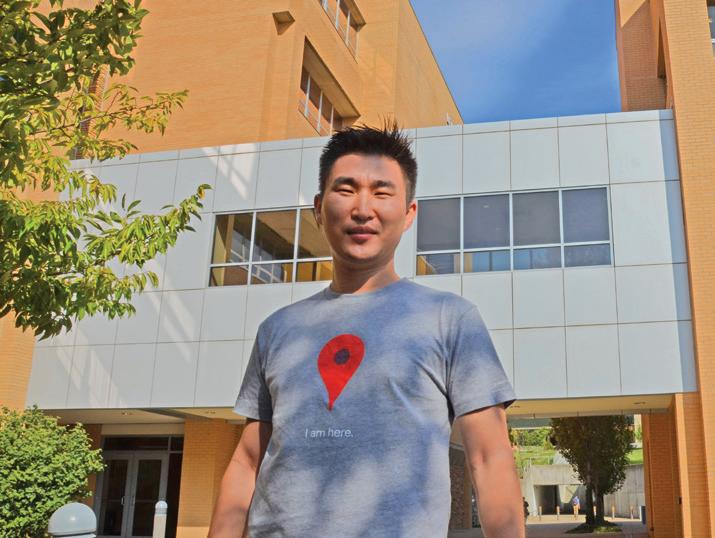are before they go there,” McClendon said. As vice president at Google, McClendon led the teams that built Google Earth, Google Maps, Local Search, Streetview and other tools used by billions of people worldwide. As cofounder of CVKey Project, he has pulled together a team of experts in public health, Brian McClendon technology and privacy to help communities around the world reopen responsibly. The team is also making the app’s source code available to other developers to examine or download, upon request.
The CVKey Project Council of Experts includes Kathleen Sebelius, former U.S. Secretary of Health and Human Services and former Kansas governor; Allen Greiner, professor and vice chair of family medicine at KU Medical Center and the Medical Officer for the Kansas City, Kansas, Wyandotte County Unified Government Health Department; and Perry Alexander, KU AT&T Distinguished Professor of Electrical Engineering and Computer Science and director of the KU Information and Telecommunication Technology Center. McClendon believes the smart use of technology can help KU manage the challenges of continuing its mission during the pandemic. “If we don’t do all we can do,” he said, “we’ll always be in a cycle of wave and close, wave and close.”
KU Research into Online Security for Public Internet Users Expands to Examine Effects of COVID-19 by Joel Mathis
U
niversity of Kansas researchers studying what they call “digital homelessness” have received an additional grant to examine how the coronavirus pandemic is affecting Americans who don’t have easy access to the internet. Before the pandemic, people without their own devices or internet access often used local libraries to obtain those services, but many of those locations have been closed or greatly reduced their access during quarantine lockdowns. “The folks we’re focused on don’t have a ‘digital home,’” said Bill Staples, principal investigator on the project, professor emeritus of sociology and director of the Surveillance Studies Research Center. “That is, their computing lives are resource-limited, transient, less private, and more vulnerable to digital threats than those who own computers and access the Web through broadband at their residences. When libraries closed, they were locked out of a digital life most of us take for granted.”
KANSAS ENGINEER | 7





















